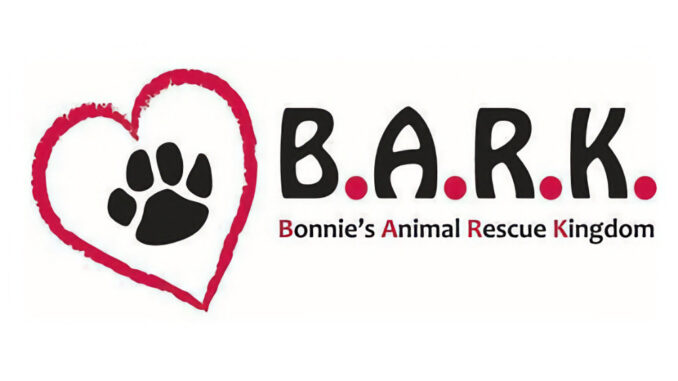
PASCACK VALLEY—Bonnie’s Animal Rescue Kingdom (B.A.R.K.), a small non-profit organization based in Paramus, is making a significant impact by rescuing abandoned, neglected, and abused dogs. Founded by Bonnie Dickinson of Paramus, the 501(c)(3) group regularly saves animals from one of North Carolina’s poorest county shelters, where the euthanasia rate for dogs once reached 90%. Thanks to the efforts of B.A.R.K., that rate has dropped to under 10%.
B.A.R.K. is calling for volunteers and foster families across Bergen County—including from towns like Paramus, Woodcliff Lake, Upper Saddle River, Fair Lawn, and Saddle River—to assist at adoption events and provide temporary homes for rescued dogs. “We rely on the incredible community support to save these dogs and find them permanent homes,” said Bonnie Dickinson, the organization’s founder. Adoption events are held every weekend at Pet Supplies Plus in Fair Lawn (Saturday, 2–6 p.m.; Sunday, 3–6 p.m.).
Wendy Zuckerberg, a volunteer from Woodcliff Lake, runs the group’s Petfinder page and helps out at the weekly adoption events. She doesn’t have an official title at the organization—“we’re too small for that”—but tells Pascack Press she’s a proud “foster failure. In fact, today [Sept. 12] marks the five-year anniversary of the day we agreed to foster the dog that later became our family member.”
Since 2008, B.A.R.K. has been transporting dogs and puppies from Caswell County, N.C., every six to eight weeks, covering medical expenses and providing essential supplies. “We do our own transport and place the rescued animals in foster homes until they are adopted,” said Dickinson. The organization also helps local families who can no longer care for their pets due to economic hardship.
Recently, B.A.R.K. took in 18 dogs from North Carolina—more than usual—because the shelter was overflowing. “We just couldn’t say no,” said Dickinson. One of those dogs, Piper, an Australian cattle dog mix, was surrendered because she is deaf. Another foster, Rabbit, found a permanent home after her eight puppies were adopted, marking the foster family’s 50th dog.
Despite these successes, B.A.R.K. has seen a decline in adoption inquiries over the past year. “Adoptions surged during the pandemic, but now interest has waned,” said Dickinson. Additionally, many people unwittingly support puppy mills posing as rescue groups. “People often don’t realize they’re supporting a cruel puppy mill,” Dickinson added.
B.A.R.K. maintains an active presence on Facebook and Petfinder, where adoptable dogs are profiled. The organization is seeking more volunteers and fosters to continue its life-saving mission. Those interested can learn more by visiting their social media pages or attending an adoption event.
